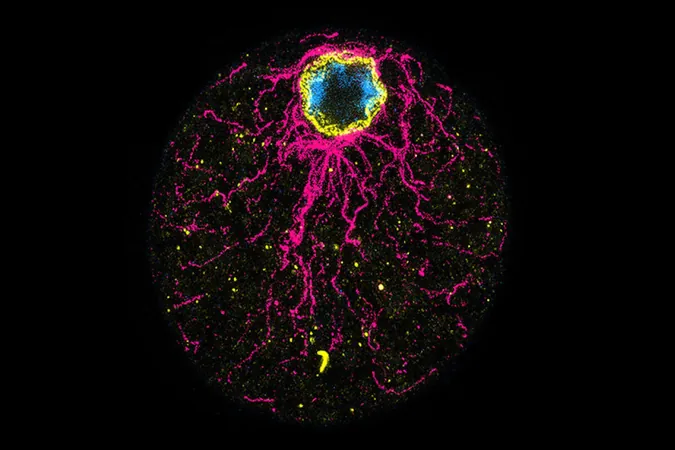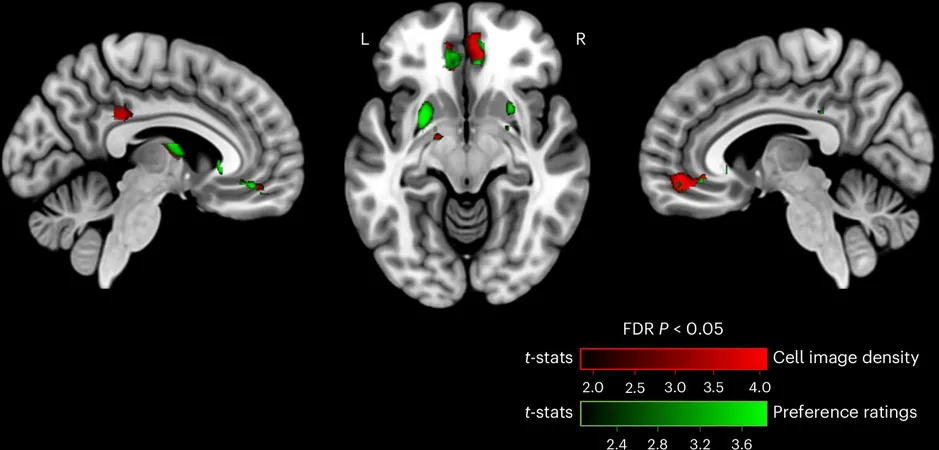
The Great Debate: Egg or Chicken? Groundbreaking Discovery May Hold the Answer!
2024-11-19
Author: Ming
In a groundbreaking study coming out of Geneva, Switzerland, the age-old conundrum of which came first—the chicken or the egg—may have found an answer thanks to a remarkable billion-year-old cellular clue!
Researchers have delved deep into the evolutionary history of multicellularity, revealing that long before our feathered friends roamed the Earth, microscopic marine organisms were performing a complex dance of cellular division that hints at the origins of life as we know it.
What the Researchers Found
The team focused on a fascinating organism called Chromosphaera perkinsii, a unicellular creature that shares a close ancestry with animals. Using cutting-edge imaging technology and detailed gene expression analysis, the scientists mapped the transformation of this tiny organism from a single cell into a thriving multicellular colony.
In their elaborate study, they discovered that C. perkinsii exhibits a unique ability to divide without enlarging, creating multiple nuclei within a single cell. Eventually, these nuclei lead to the formation of specialized cells, some equipped with flagella for movement, mirroring the developmental processes observed in early animal embryos.
What It Means for Evolutionary Biology
The implications of these findings are profound. They suggest that the origins of multicellular life may predate chickens and even other vertebrates by millions of years, thereby reshaping our understanding of evolution. This new evidence paints a picture of early unicellular organisms as complex social beings capable of differentiation, ultimately serving as a stepping stone to the vast diversity of multicellular life we see today.
Cautionary Notes
While these results spark excitement and inspiration, researchers caution against drawing definitive conclusions. The experiment was conducted in controlled laboratory conditions, raising the question of whether these findings apply to organisms in their natural habitats. Moreover, the genetic similarities between C. perkinsii and modern animals leave scientists pondering whether these traits are inherited characteristics or examples of convergent evolution.
A New Era in Understanding Life's Origins
In essence, this study not only sheds light on the origins of multicellularity but also serves as a critical piece of the puzzle in understanding how animal life emerged from simpler forms. As researchers continue to explore these ancient lineages, one thing is clear: the quest to uncover the roots of life on Earth is only just beginning!
Stay tuned for more updates as this riveting area of study unfolds, possibly leading us closer to answering one of biology's most perplexing questions. The journey from a single cell to complex organisms could hold the key to our very understanding of life!

 Brasil (PT)
Brasil (PT)
 Canada (EN)
Canada (EN)
 Chile (ES)
Chile (ES)
 España (ES)
España (ES)
 France (FR)
France (FR)
 Hong Kong (EN)
Hong Kong (EN)
 Italia (IT)
Italia (IT)
 日本 (JA)
日本 (JA)
 Magyarország (HU)
Magyarország (HU)
 Norge (NO)
Norge (NO)
 Polska (PL)
Polska (PL)
 Schweiz (DE)
Schweiz (DE)
 Singapore (EN)
Singapore (EN)
 Sverige (SV)
Sverige (SV)
 Suomi (FI)
Suomi (FI)
 Türkiye (TR)
Türkiye (TR)